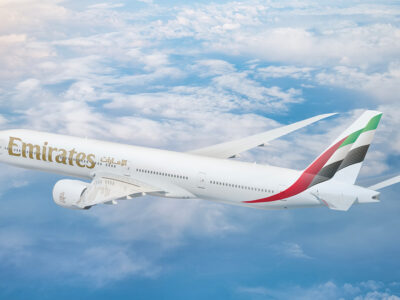Dating back to the 16th century, the Middle East and Africa have enjoyed strong economic and political relations driven by trade across the Indian Ocean.
Undoubtedly, these historic ties have shaped the present, as of 2017, the United Arab Emirates (UAE) and the Kingdom of Saudi Arabia were the second- and fifth-largest investing countries in Africa, respectively.
Despite the steady growth of investments by the Middle East in Africa, trade between Saudi Arabia and the region remains low. However, the current economic and regulatory environment in African countries and the KSA are favorable to amplifying linkages between the two regions.
As a regional leader, Saudi Arabia should seize this moment to deepen its investments on the continent and catalyze its neighbors to do the same. Similarly, this is an opportune time for the public and private sectors of African countries to strategically identify and tap into the economic opportunities that KSA’s Vision 2030 presents.
Increasing the level of trade and investment between Saudi Arabia and the African continent does not only serve to strengthen political ties, but also makes sound business sense. With a market size of 1.2 billion people and a combined GDP of over $2.2 trillion that is projected to reach $2.6 trillion by 2020, Africa is home to five of the ten fastest-growing economies in the world.
Current initiatives by China through FOCAC, Japan through TICAD, and Russia through the AfreximBank summit and the Sochi Russia-Africa summit point to a renewed and growing interest by global superpowers to deepen their engagement with Africa. Increased engagement between African countries and other markets can be attributed to regulatory reforms within individual countries, as well as the recent signing of the African Continental Free Trade Agreement (AfCFTA).
The AfCFTA aims to create a single continental market valued at $3 trillion. This marks a new era of increased trade within Africa, with fifty-one African countries having signed this landmark agreement. AfCFTA provides African countries with a vehicle to work in a much more coordinated manner across their various interests and comparative advantages, while also offering countries like Saudi Arabia a single entry point to engage in economic activity on the continent.
Saudi Arabia has already shown the intent to take advantage of this window of opportunity. In the just-concluded Future investments Initiative (FII), the Saudi Fund for Development committed to investing in Kenya’s Big Four Agenda.Additionally, KSA plans to launch the first Saudi-Africa summit, bringing together key business executives, political leaders, and policymakers from both regions. If the FII is anything to go by, this seminal event will provide an opportunity to reset relations between both regions, as well as identify new opportunities for collaboration.
To meet the ambitious targets outlined in its Vision 2030 agenda and move to a post-oil economy, KSA must tap into emerging markets, including those in Africa. The success of the Saudi-Africa summit could play a key role in boosting and securing KSA’s long-term interests on the continent, while also providing new trade and investment opportunities for African countries themselves.
To forge sustainable partnerships between Saudi Arabia and African markets, more permanent and accessible channels, such as inter-governmental business councils, are needed. One key function of these business councils would be to bridge existing knowledge gaps by providing reliable insights into the business requirements in both regions.
For instance, African food exporters would benefit from knowing the Halal requirements that must be met to trade with Saudi Arabia and other Middle Eastern food importers. There are existing examples of the successes of inter-governmental business councils on the continent.
Turkey has 45 business councils in Africa, which inform Turkish companies on local tenders and support them in the bidding process. In 2016, Dubai’s Chamber of Commerce and Industry (DCCI) opened its fourth African office in Nairobi, enlisting 211 Kenyan companies in its first year.
The DCCI’s representative offices’ success in creating reciprocal linkages between the UAE and African countries sets a clear example for Saudi Arabia to learn from, as they not only help Dubai businesses navigate investment opportunities on the continent, but also provide a base and platform for African companies seeking access to the Dubai market.
The past decade has seen significant shifts in global relations, characterized by the emergence of new players and the formation of non-traditional alliances. Increasingly, emerging economies are renewing old relationships to boost economic partnerships and foster collaboration for strategic projects. With slower growth expected in some developed economies and a looming recession in others, investors are rightfully redirecting their focus to emerging markets. Historic ties coupled with the unprecedented level of economic growth and business reforms in Africa offer an increasingly conducive and lucrative environment for Middle Eastern firms and investors.
The timing is perfect for Saudi Arabia and its African counterparts to leverage their respective synergies and complementarities and bolster shared prosperity.
Isaac Kwaku Fokuo Jr, principal & founder at Botho Emerging Markets Group








